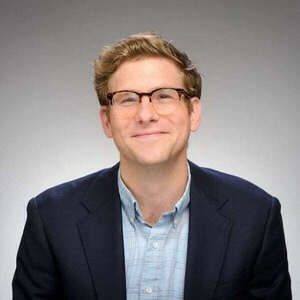 "
"
Matthew Kilbane is an assistant professor of English and a faculty affiliate for the Lucy Family Institute for Data and Society. Interested in modern and contemporary American poetry, Kilbane’s research explores digital literary cultures and the intersection between poetry and music. This semester, he is co-teaching a newly offered one-credit course titled “Poetry Machines: Computing, Culture & Creativity” with Professor Katherine Walden of American Studies and Professor Sarah Edmands Martin of Visual Communication Design. The class offers students hands-on experience in algorithmic design and robotic construction in the context of romantic desire and computation.
How were you and Professor Walden inspired to create a course that combines computing and poetry?
“Essentially, we’ll get a small group of students together and a couple of weeks will be about poetry, love poetry in particular. Together, let’s read a bunch of love letters and think about what is algorithmic about these letters. What would it mean to say that there’s a formula for love?... One of the questions I want to ask at the end of the conversation is ‘Could we actually build a computer program that expressed something true or human or truly evocative about the experience of love?’ The approach will be to spend a couple of weeks reading a bunch of poems, students will get into groups and then they’ll come up with a grand vision for a poetry bot that would be able to produce a love poem that actually passes muster as a love poem. And then I hand it over to [Professor Walden], and it’s her job to actually set it up with programming. We have a colleague from art history design, Sarah Edmands Martin coming in to handle the design… And then [the poetry bots] will be all around campus, so people will be able to interact with them.”
What got you interested in poetry?
“I had a job working at a community college after I graduated, and I had a lot of time on my hands, so I had to kind of pretend that I was working, so I read literature on my laptop. And I found that reading poetry was really conducive for creative reading because it wasn’t really long, and you didn’t need a big book. So I started and then at the community college, there was a professor, a poet there who had just been hired. And because I was working there, I could take classes for free. So I took the class and it sort of blew my mind. I was like ‘oh my gosh, all this time, I was really afraid of poetry, but in fact, I didn’t need to be afraid because it’s the best thing in the world. I kind of fell in love… I kind of discovered along the way in my PhD that talking about poetry actually allows me to talk about other things that are interesting like the history of media or technologies.”